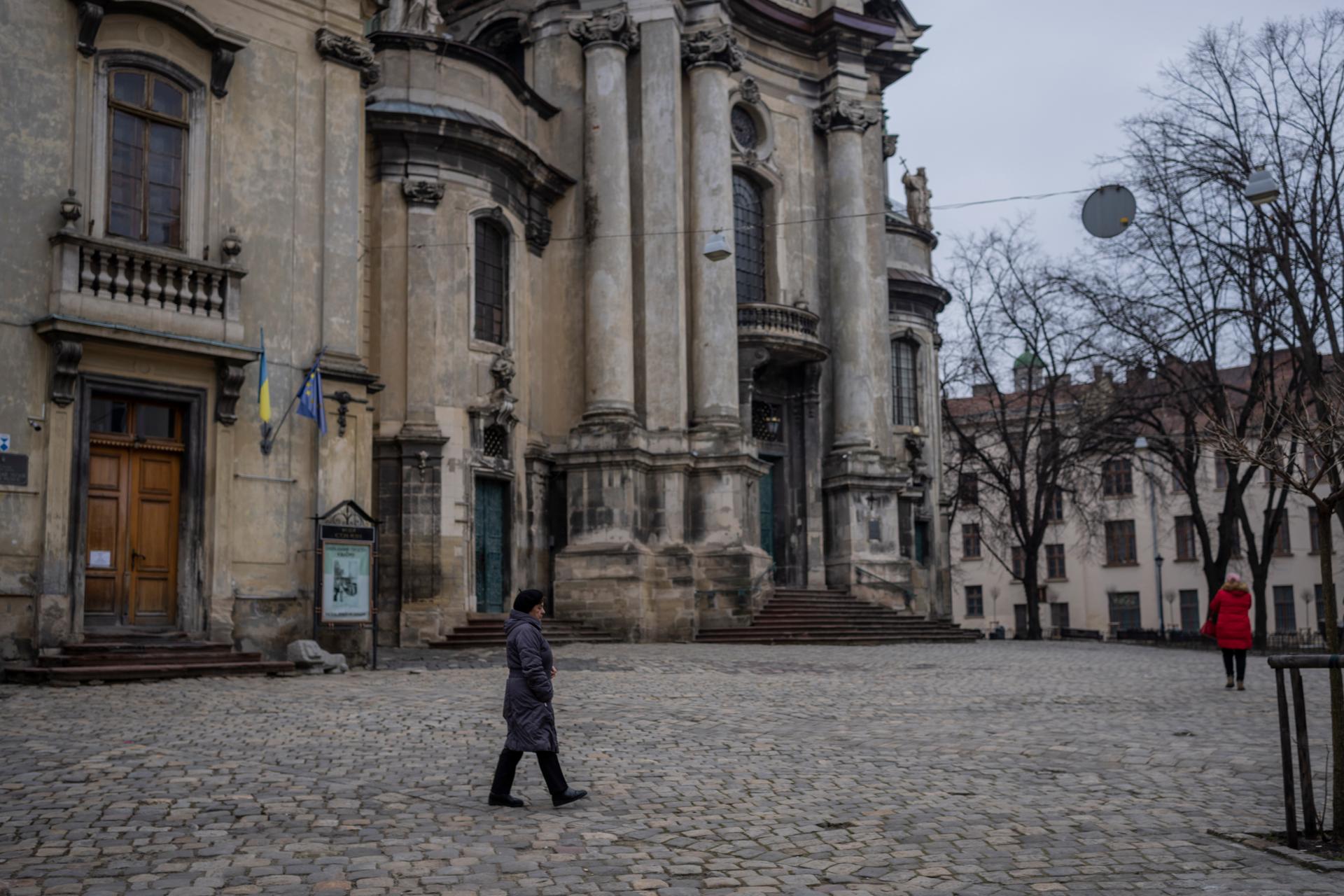A curious sight meets those arriving in Lviv’s medieval Market Square: A statue of Roman god Neptune entirely wrapped in plastic and foam, with only his trident protruding as protection against attack from Russian forces.
“It won’t be enough to withstand shelling, but we need to do something.”
“It won’t be enough to withstand shelling,” local historian Andriy Kozyckyj admitted, gazing up at the monument, “but we need to do something.”
Related: Many Ukrainians face a future of lasting psychological wounds from the Russian invasion
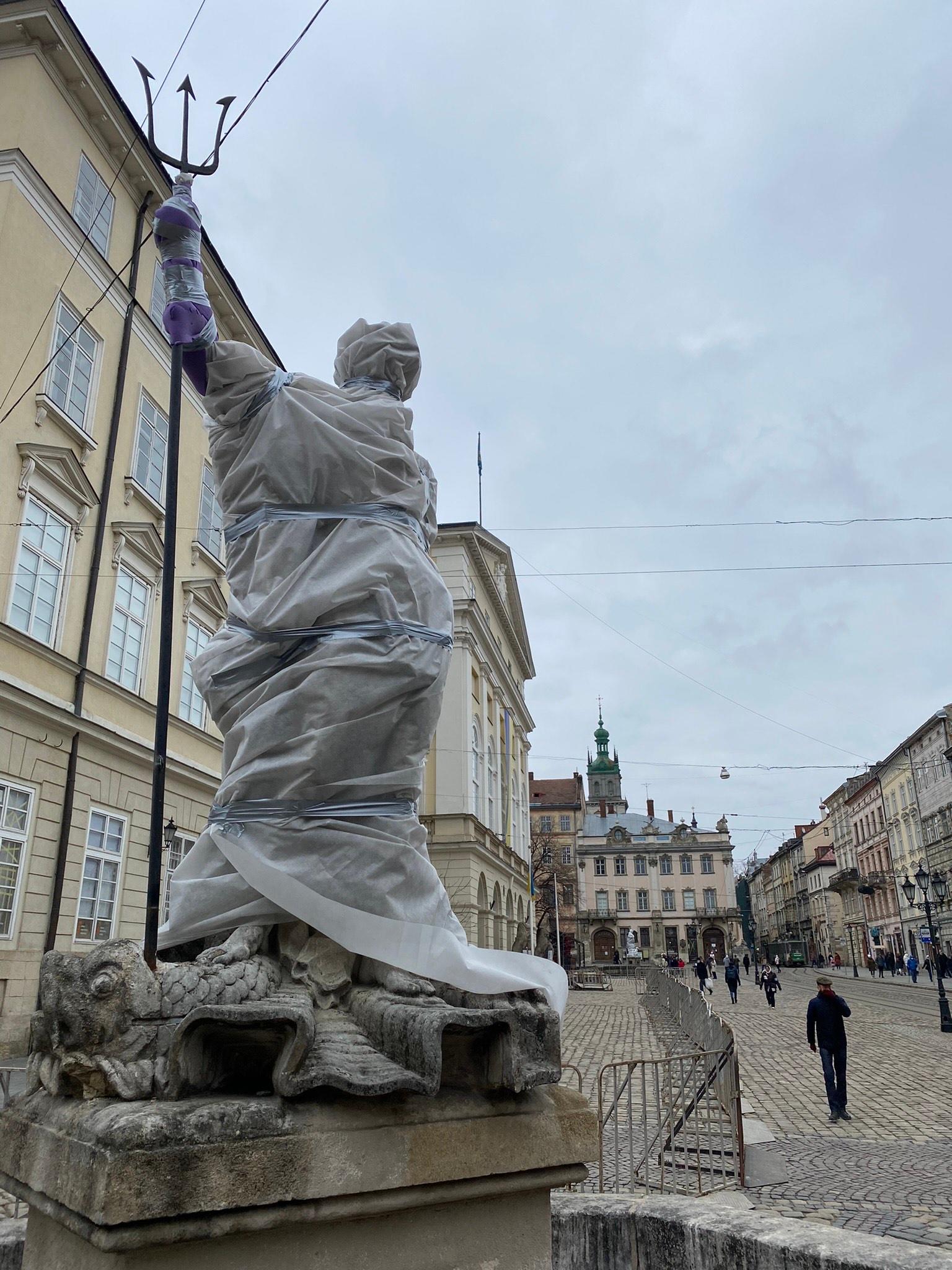
Lviv is a timeless-feeling city, and a city racing against time.
The sheer number of well-preserved ancient buildings and monuments here earned its designation as a UNESCO World Heritage site in 1998. But two decades later, this heritage is under existential threat from Russian attack, and a walk around the old town reveals how the city is hastening to defend it.
Kozyckyj, 51, has been overseeing the guarding and storage of his own university’s historical artifacts, working 12-hour shifts.
Related: The Ukrainian city of Lviv is a sanctuary. But a humanitarian crisis is deepening.
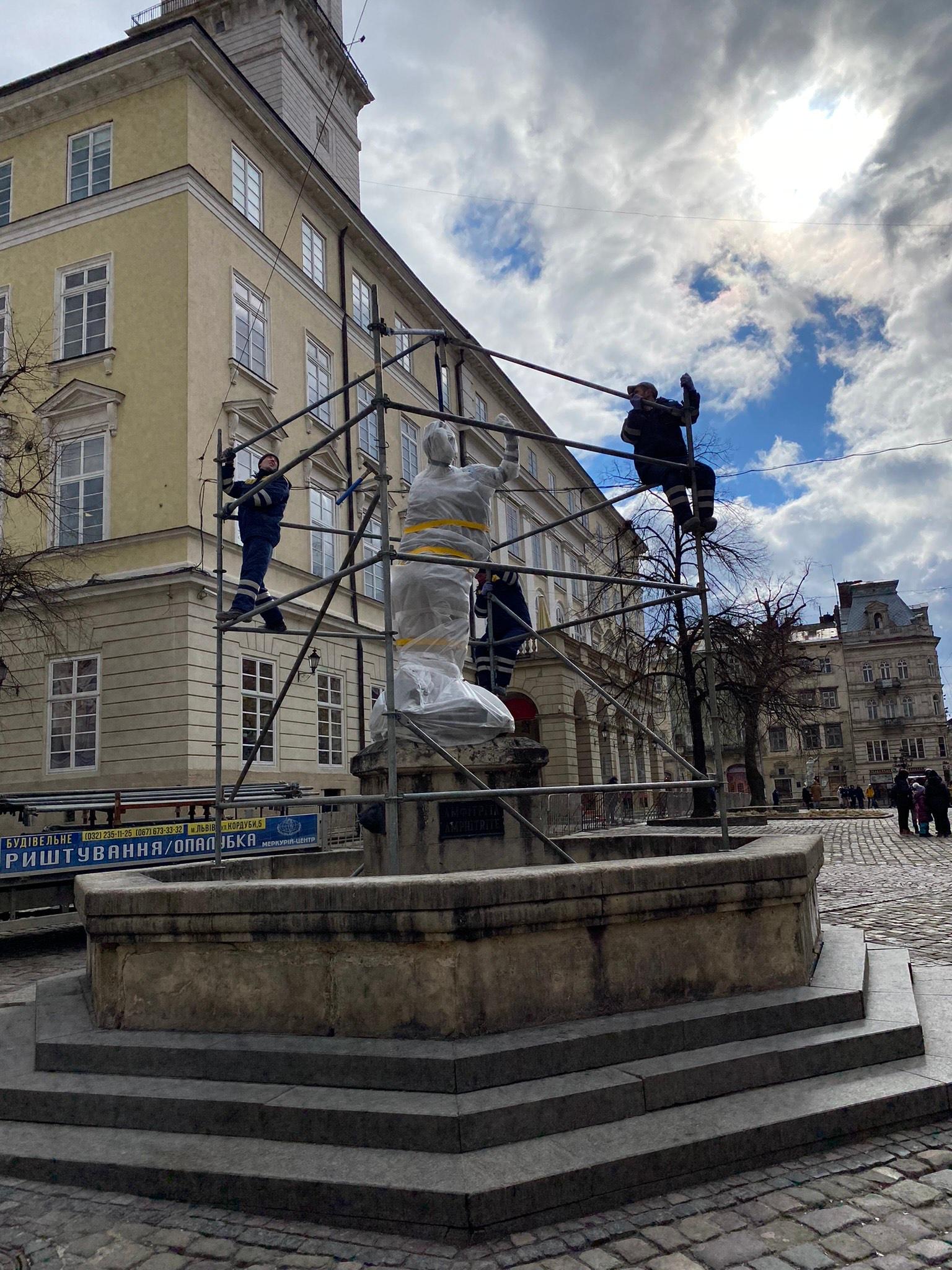
“We have a sad history of items leaving us. Both the Nazis and then, the Soviets looted the city’s priceless artifacts so, it’s better to keep them here if we can.”
“We have a sad history of items leaving us,” Kozyckyj said. “Both the Nazis and then, the Soviets looted the city’s priceless artifacts so, it’s better to keep them here if we can.”
Lviv is primarily a Ukrainian-speaking city and nationalistic feeling runs deep.
Related: ‘We have compassion for them’: Romania is taking in thousands of Ukrainian refugees
“Russian media describes us as a nest of Nazis and nationalists. Genocide starts with the dehumanization of the other so, they could strike us next,” he said. “Our neighbors are putting tape on their windows to protect from blasts and during the air raid sirens, we run to the basement. If we didn’t believe it was a risk, we wouldn’t do it.”
Across the square stands the butter-yellow, 17th-century Renaissance townhouse that contains the Lviv Historical Museum.
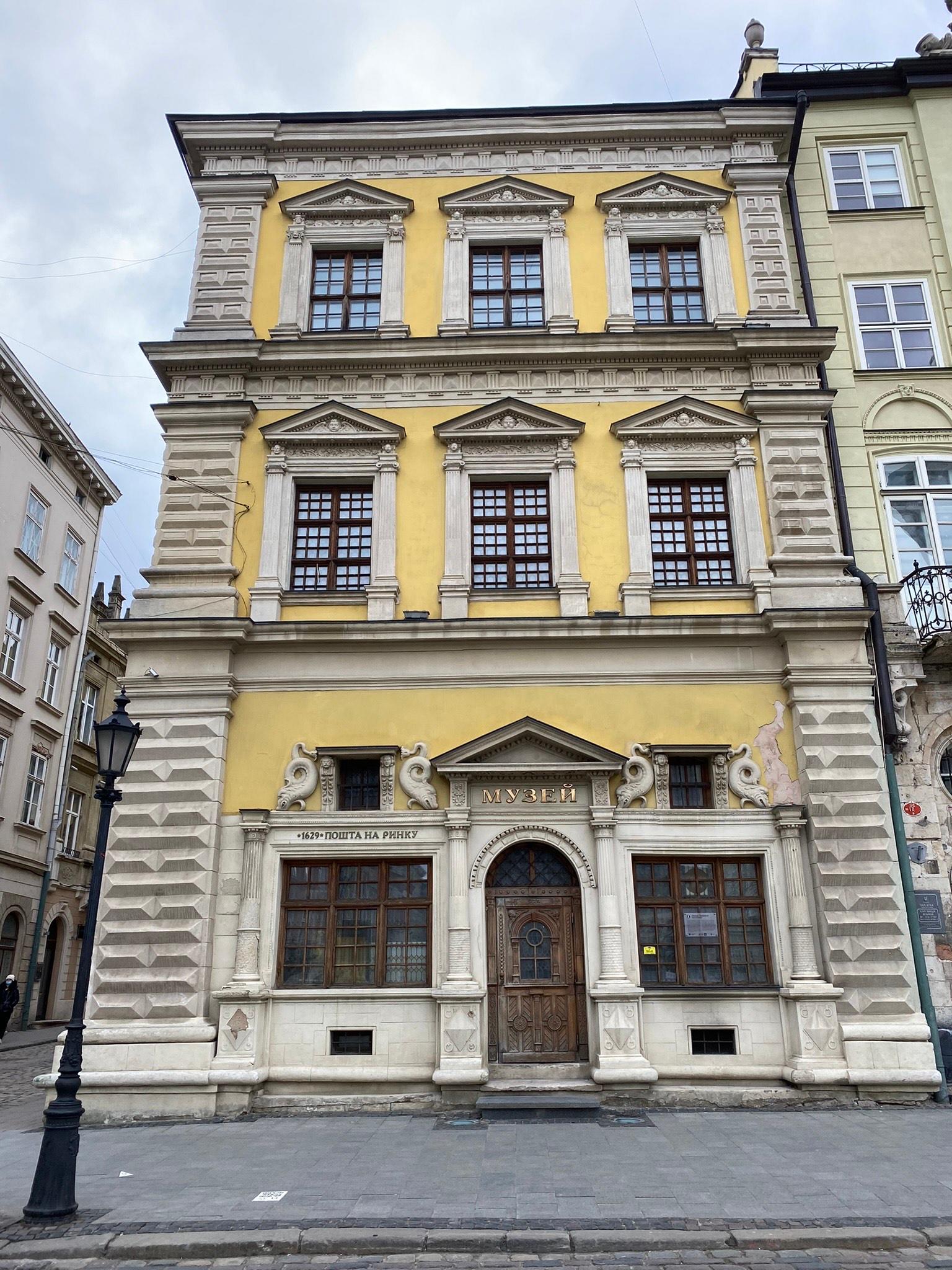
Its director, Roman Chmelyk, said that it’s not only Ukrainian history at stake.
“We have over 350,000 artifacts here from all over Europe: antique furniture, silverware, portraits and manuscripts from the 11th century,” he said.
Related: ‘The risk of escalation is too great’ for a no-fly zone in Ukraine, analyst explains
For now, those pieces have already been taken away to storage at an undisclosed location.
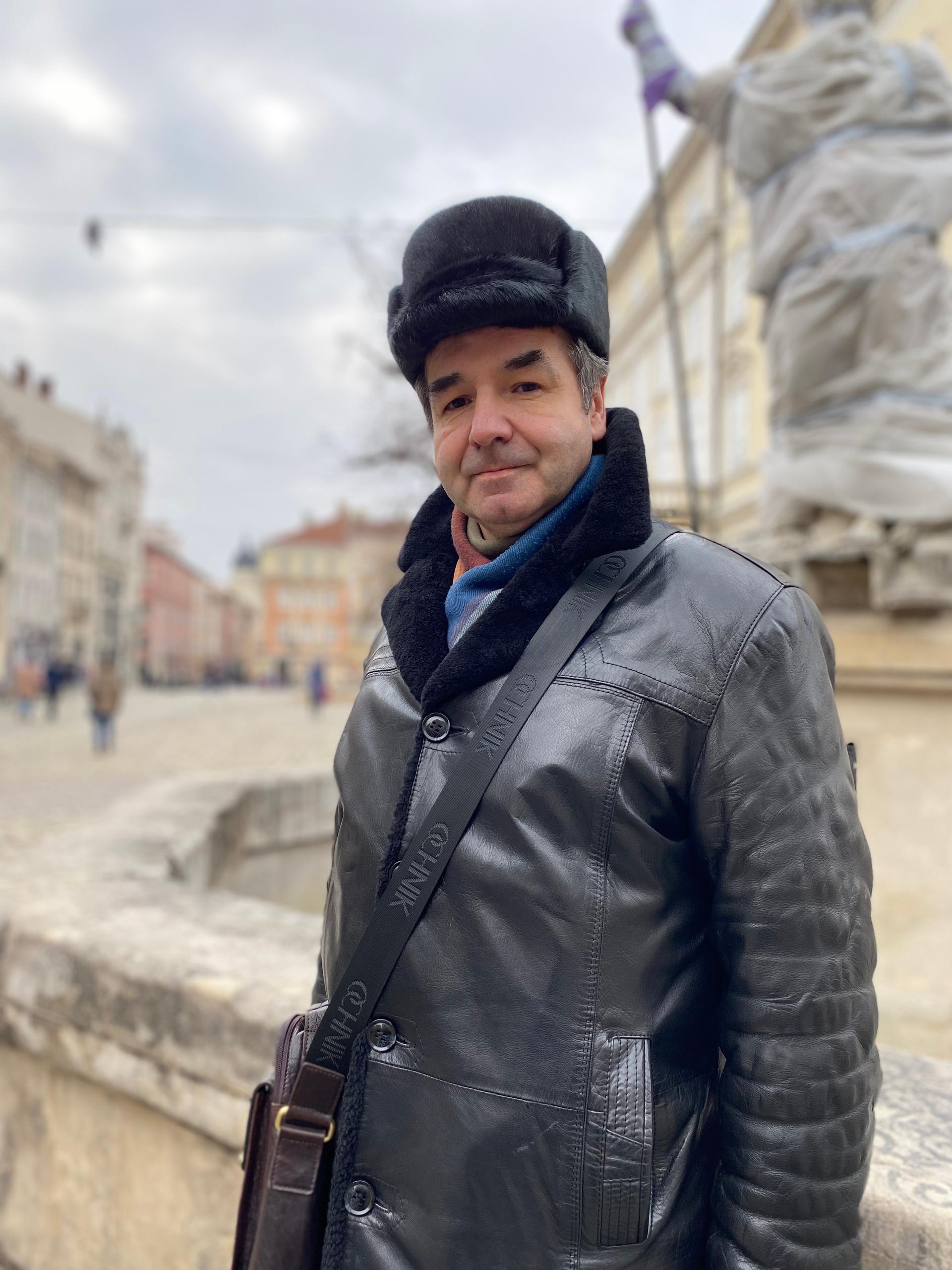
“We couldn’t believe this would happen,” Chmelyk, 59, said. “We thought we would be sheltering artifacts from the east of Ukraine, not our own stuff.”
Other parts of the city’s cultural legacy are also under threat — not just tangible artifacts.
At Lviv’s Les Kurbas Theatre, the performers have become stars of their own tragedy. They had to halt their latest production — the psychological thriller “Mindgame” by Anthony Horowitz — just two days in.
“The most dramatic performance is happening right now.”
“The most dramatic performance is happening right now,” actor Andrii Vodychev said.
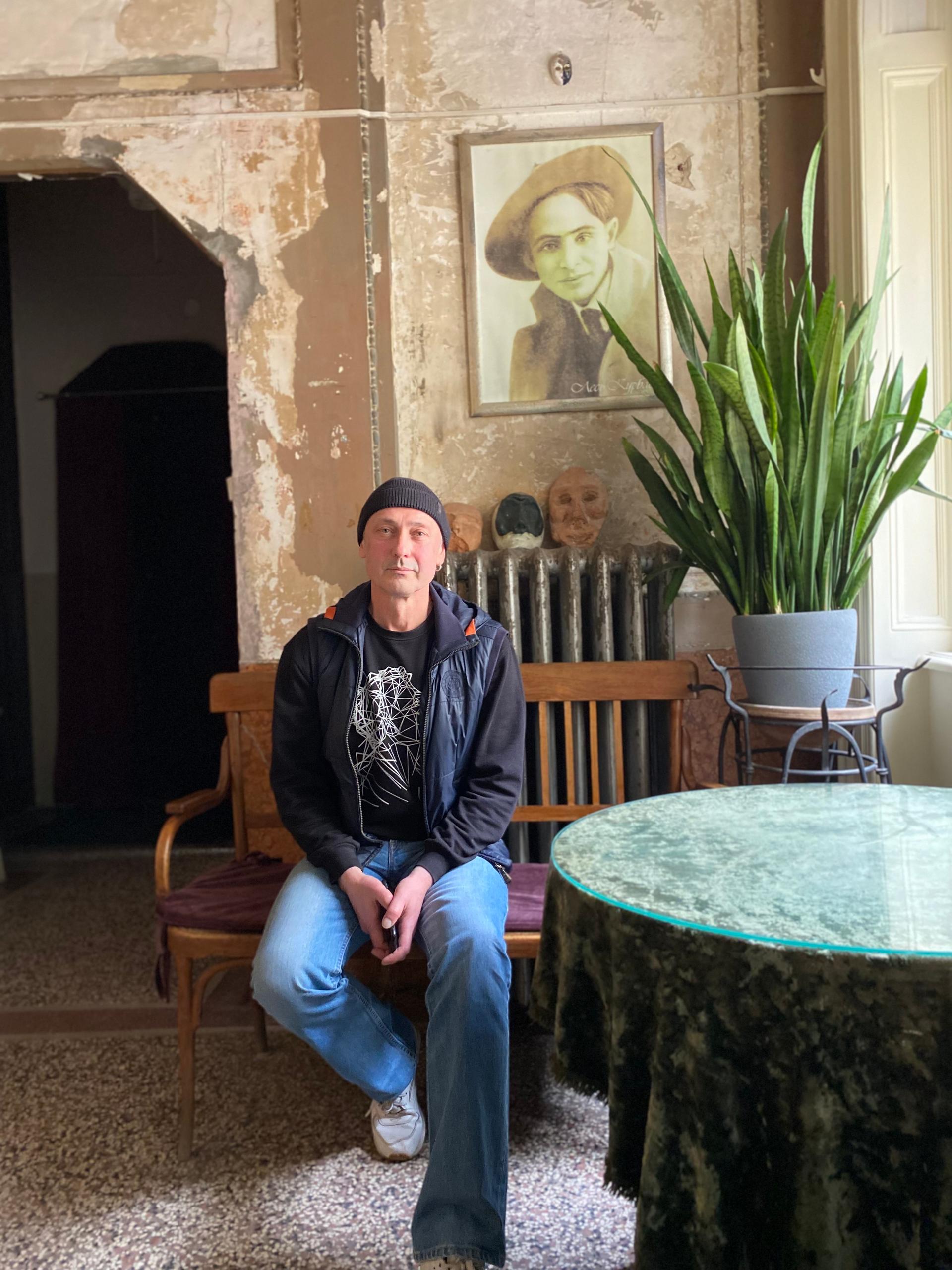
Vodychev, who is originally from the Crimean Peninsula, which was annexed by Russia in 2014, studied drama in the eastern city of Kharkiv, which has been under heavy bombardment since war erupted.
Vodychev, 47, moved to Lviv specifically to work at this prestigious theater, though now, the 18-strong troupe has been split up.
“Most are volunteering at the theater; others have joined the territorial defense forces and some,” Vodychev said shuddering, “are now fighting in Mykolaiv.”
The southern city is a key strategic target for Russian forces and heavy civilian and military casualties have been reported there.
Lviv seems safe for now, but Vodychev said that he knows what is at stake. He said that freedom of expression has been crushed in his homeland of Crimea since the Russian occupation.
“Artists are not free,” he said. “Dissenting actors are sent to jail, and minorities are persecuted. Chekhov, Dostoevsky, Tolstoy, they all wrote about the horrors of totalitarian societies. What a shame that their warnings were not heeded in their own country.”
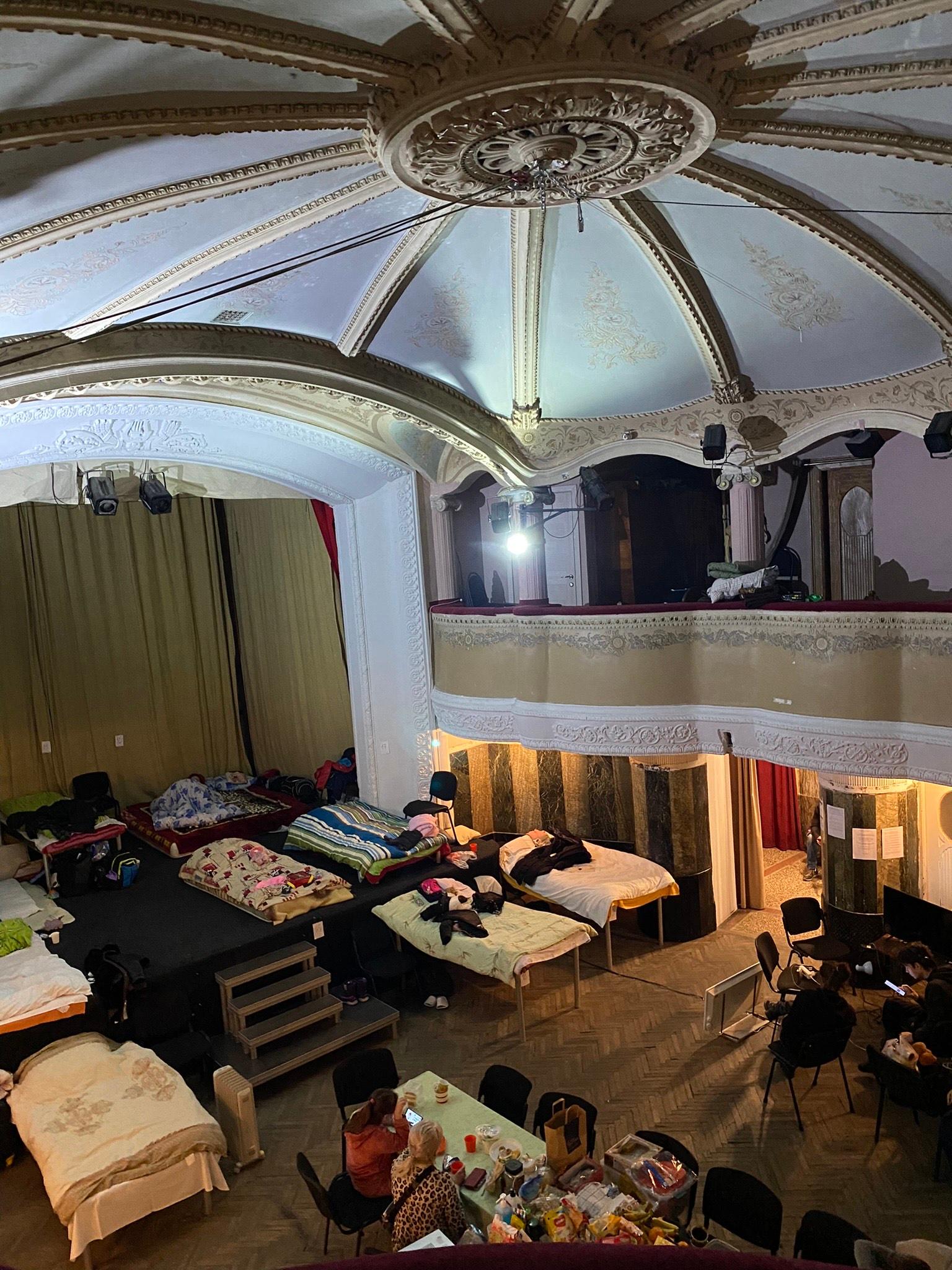
According to the mayor of Lviv, the city is currently hosting more than 200,000 displaced people. A few dozen are sheltering here in the theater.
Mattresses are laid out on the stage; some squeeze into balconies on the upper circle. When the air raid siren sounds, everyone goes down to the basement to shelter among the props and scenery.
For a city synonymous with music and arts, the most common sound in the city right now is hammering and drilling.
Andriy Pochekva oversees the restoration and preservation of the city’s cultural heritage such as the downtown, 14th century basilica. As he spoke, workmen on cranes placed steel plates onto the stained-glass windows.
“For centuries, Moscow has tried to take away our culture,” he said. “The aim is to destroy the identity of the country.”
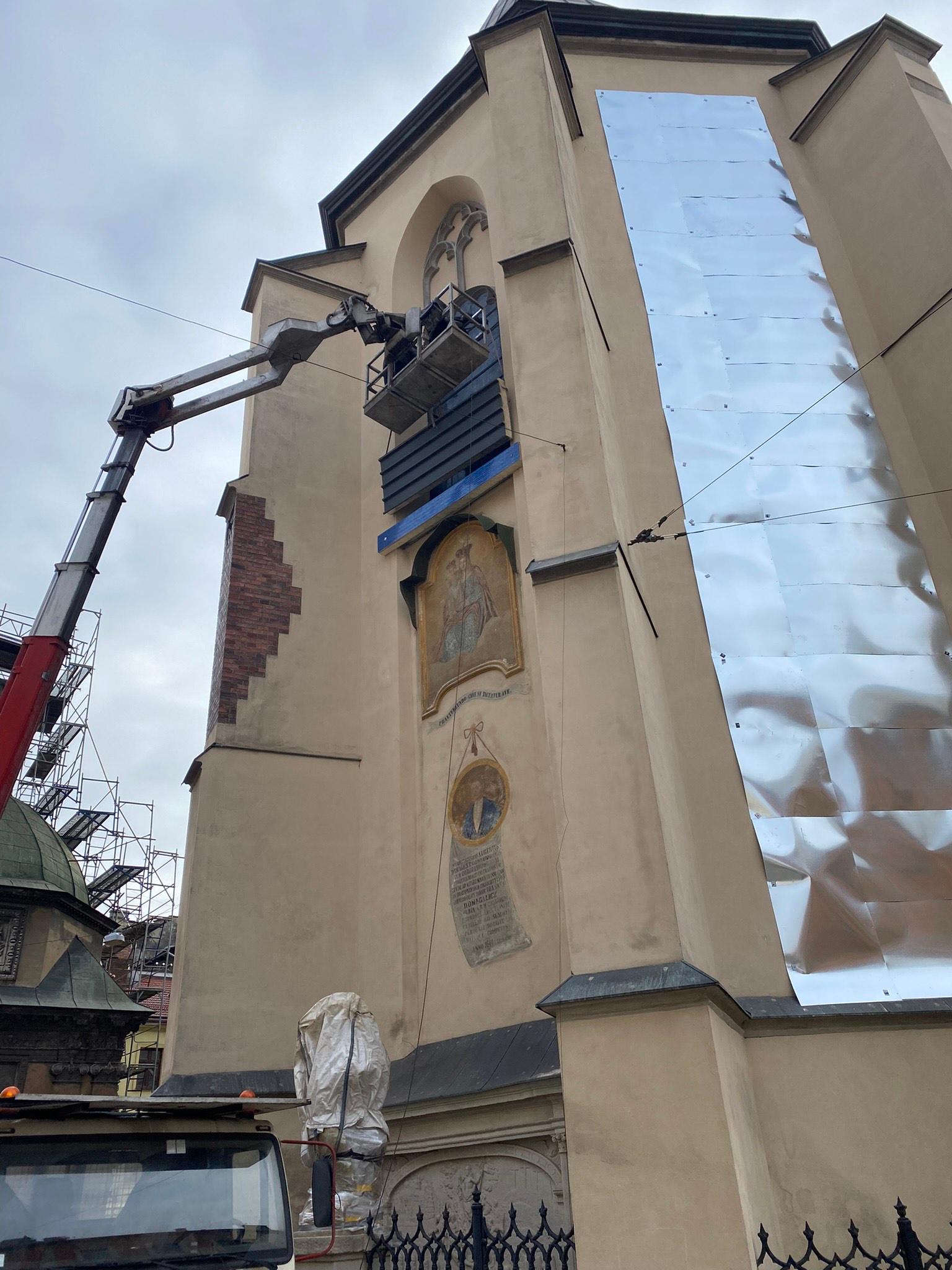
Pochevka was blunt — he described it as “cultural genocide.”
Pochekva, 44, added that a lack of available climate-controlled storage space in the region is also a problem. So, these ancient works of art risk being damaged even if they avoid bombardment.
They hope for the best, he said, and plan for the worst.
“Russia already targeted churches,” Pochekva said, referring to the damage sustained to an Orthodox church in Kharkiv. “They don’t care about heritage.”
Meanwhile, another steel plate was placed onto the windows above the basilica.
“We hope that the work we are doing won’t be necessary,” he said.
Our coverage reaches millions each week, but only a small fraction of listeners contribute to sustain our program. We still need 224 more people to donate $100 or $10/monthly to unlock our $67,000 match. Will you help us get there today?
